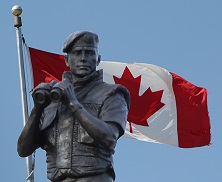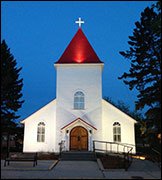True and Fascinating Canadian History
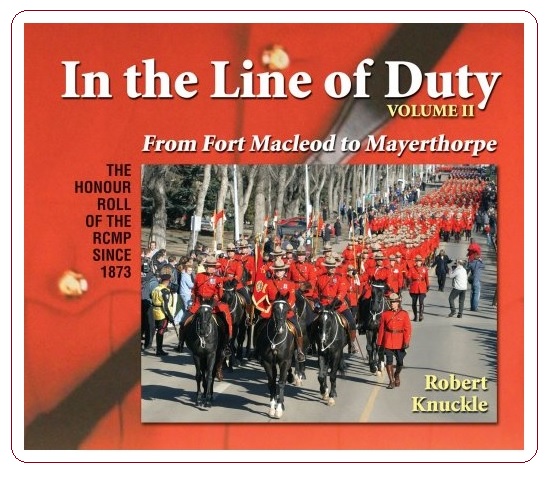
Vet of the Month: December, 2021
Reg.#4396, Corporal William Andrew Doak
Honour Roll #45
RCMP Vets. Ottawa, ON
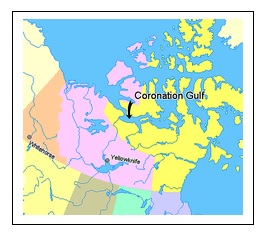
Lying between Victoria Island and mainland Nunavut, Canada, there are few places in the world as lonely as the Coronation Gulf. In spite of its desolate location, there have been a few murders reported in the Coronation district. In June 1912, two explorers, Harry V. Radford, an American, and Thomas George Street, a young man from Ottawa, were slain near the southern end of Bathurst Inlet. This is the short story of RCMP Corporal William Andrew Doak who was also murdered in the area one hundred years ago.
William Andrew Doak joined the RCMP in Calgary, AB on June 2, 1905. He was an asset to the RCMP because he was single. The RCMP preferred to send unmarried RCMP members to the Arctic, it was more economical and expedient, and Doak had expressed a desire to work in Canada's north. With sixteen years with the RCMP, Doak had some experience in the Arctic, and although he felt some uneasiness with certain Indigenous People, he was not prepared for violence nor did he imagine the fatal circumstances which led to his death.
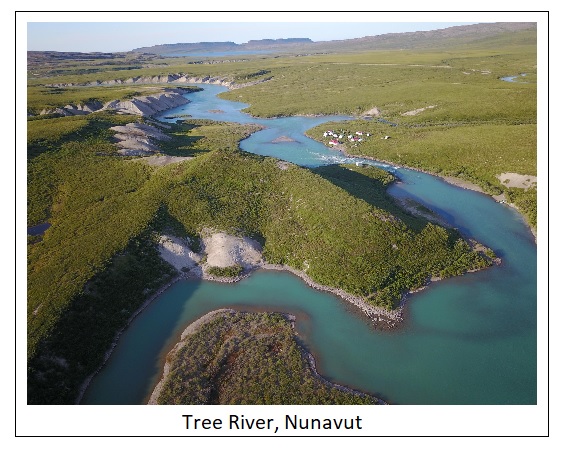
Doak was aware of other murders which had been reported among the Indigenous People, and he undoubtedly was aware of the dangers facing the RCMP in this isolated part of Canada. In one particular episode, he nearly died from exposure to the cold weather. The incident was related to me by RCMP Veteran Larry Burden.
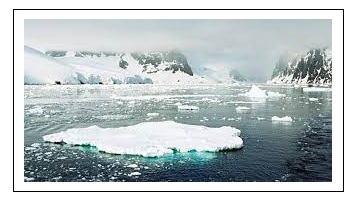
Larry Burden wrote, "On July 22, 1918, Inspector John Phillips accompanied by Cpl. Doak and Cst. Eric H. Cornelius left Herschel Island in a boat to obtain the mail. During the journey, they were caught in a sudden storm and some floating sea ice wrecked their boat. The three RCMP were forced to abandon the boat and jump from one ice floe to another as they made their way to solid ice. Eventually, the trio encountered open water. They swam in the arctic water to reach shore, and Constable Cornelius was directed to hike back to Herschel some 19 kilometers away to obtain help. Inspector Phillips and Corporal Doak built a driftwood shelter on the shoreline. Following orders, Constable Cornelius began his trek to Herschel in soaking wet clothing. By the next morning, Corporal Doak was delirious with fever and he and Inspector Phillips were nearly frozen from the cold. Fortunately, the pair were able to get the attention of a passing whaling boat and they were rescued by the crew. When the rescue party located Cst. Cornelius, they found him valiantly struggling in his frozen clothing to find his way back to Herschel Island." The episode in the arctic waters illustrated the unexpected dangers which the RCMP faced quite regularly, but in two years time, Corporal Doak would face another danger which cost him his life.
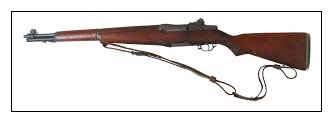
Doak was also aware, that in the past, Indigenous men had been handed what was perceived by law enforement officials lenient sentences by the judiciary for murder. After sentencing, some convicted persons were allowed to return to their communities. According to author Robert Knuckle, Doak had vented his frustrations about lenient sentences to other government officials.
According to author Robert Knuckle, the events which led to Doak's murder came about this way. "In February 1922, he and Constable D. H. Woolams arrested a Cogmollock named Tatamagama and his 18 year old nephew, Alikomiak, for participating in another blood feud in which they had killed five Cogmollock natives. Tatamagama and Alikomiak were incarcerated in the jail at the Tree River Detachment. Somehow during the early morning of April 1, 1922, Alikomiak got out of his cell and stole a rifle from an adjacent shed. He then shot and killed Cpl. Doak as he lay sleeping. After that, Alikomiak waited at the window, and when he saw the Hudson Bay factor, Otto Binder, coming towards the jail for his when morning visit, Alikomiak shot him dead in his tracks." (Knuckle: 132-133). Corporal Doak was 39 years of age when he died. He and Mr. Otto Binder were buried side by side at Tree River. In 1924, after their trial, Tatamagama and Alikomiak were hanged.
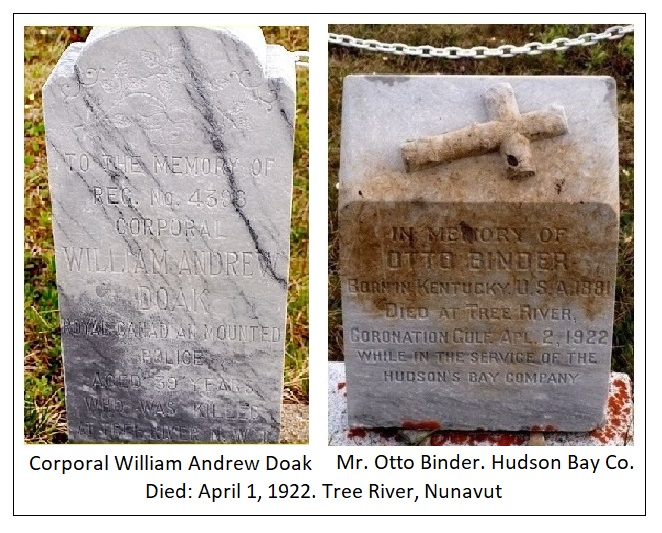
Corporal Doak is listed as Honour Roll#45 in the RCMP's Book of Remembrance & Reflection which lays open at the entrance to the Chapel at 'Depot' Division.
Doak Court at 'Depot' Division in Regina, SK, Doak Crescent at the Canadian Police College in Ottawa, ON and Doak Island in Nunavut are all named in memory of Corporal W. A. Doak.
A new and fascinating development in the story of Corporal Doak came to light recently. The grave of his parents (Mr & Mrs Doak) was found last week (January 23, 2022) in the Fredericton, New Brunswick Rural Cemetery by volunteer Mr David Underhill who sent the photo of the Doak grave to NB RCMP Veteran Dave Ward for inclusion in this story. One can read Corporal Doak's name on his parents grave marker.
Reporting from Fort Healy,
J. J. Healy
December 23, 2021
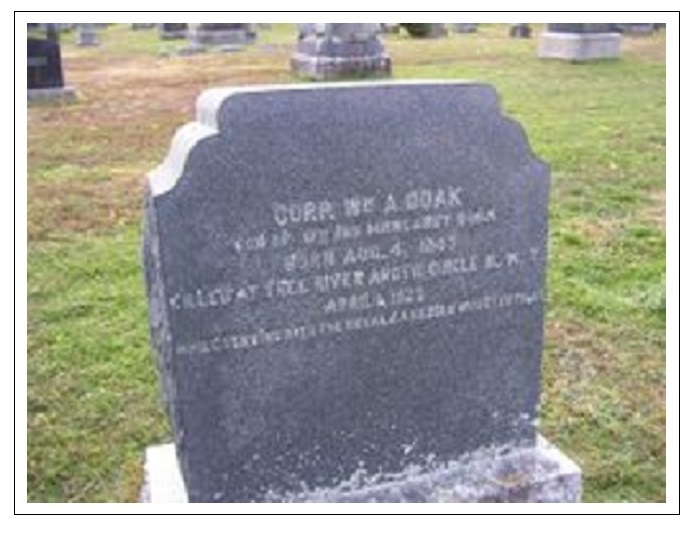
Knuckle, Robert. (1994). In The Line of Duty. General Store Publishers. Burnstown, ON.

